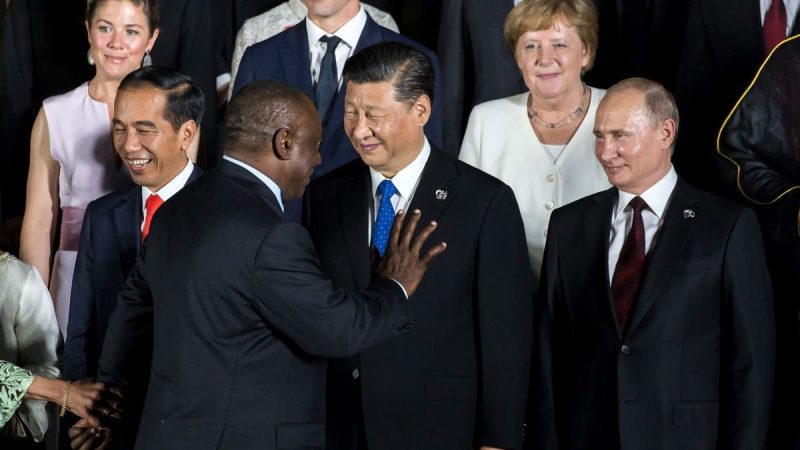In recent times, the United States has expressed its concern over South Africa’s deepening relationships with Russia, Iran, and Hamas. These partnerships have raised eyebrows in diplomatic circles and added layers of complexity to global politics. The implications of these alliances are far-reaching and have sparked debate and speculation across the international community.
South Africa’s growing ties with Russia have garnered significant attention and scrutiny. The collaboration between the two countries spans various spheres, including defense, energy, and trade. Russia, under President Vladimir Putin, has been increasingly assertive in its foreign policy, seeking to expand its influence in different regions. By aligning itself with Russia, South Africa opens itself up to potential geopolitical implications, prompting questions about the country’s strategic direction and alignment.
The relationship between South Africa and Iran is another key focal point of concern. Iran, known for its contentious international relations, especially with Western countries, presents a diplomatic challenge for South Africa. Iran’s involvement in various conflicts in the Middle East and its nuclear ambitions have made it a controversial partner on the world stage. South Africa’s decision to bolster ties with Iran raises questions about its stance on critical issues such as human rights, nuclear proliferation, and regional instability.
The involvement of Hamas, a Palestinian militant group, in South Africa’s foreign affairs has also raised eyebrows. Hamas’s designation as a terrorist organization by several countries, including the United States and the European Union, has led to diplomatic rifts and strained relationships. South Africa’s support for Hamas has drawn criticism and skepticism, casting shadows over the country’s foreign policy alignment and values.
The convergence of these partnerships between South Africa, Russia, Iran, and Hamas has garnered the attention of the United States, which remains wary of the implications of these alliances. The U.S. government has been vocal in expressing its concerns over South Africa’s growing ties with these countries and organizations, citing potential risks to regional stability and global security.
Amidst the complex web of international relations, it is crucial for South Africa to navigate its partnerships judiciously and with careful consideration of the broader implications. Balancing its strategic interests with diplomatic sensitivities is paramount in shaping its foreign policy agenda and safeguarding its national interests.
As South Africa continues to forge new relationships and deepen existing ones, the international community will closely monitor the developments and outcomes of these alliances. The dynamics between South Africa, Russia, Iran, and Hamas will undoubtedly shape the geopolitical landscape and influence global dynamics in the years to come. The intricate dance of diplomacy and power play will define the trajectory of these relationships and determine their impact on regional and international affairs.




























